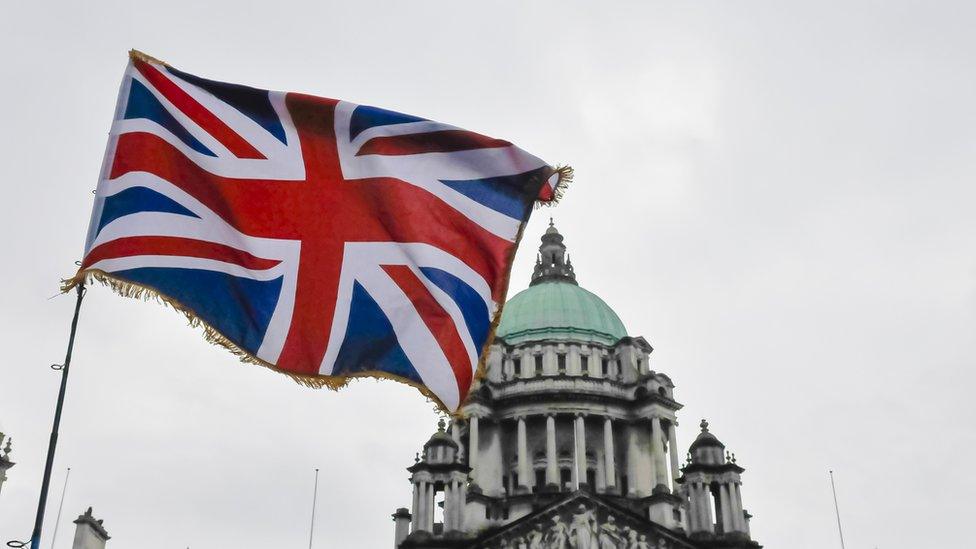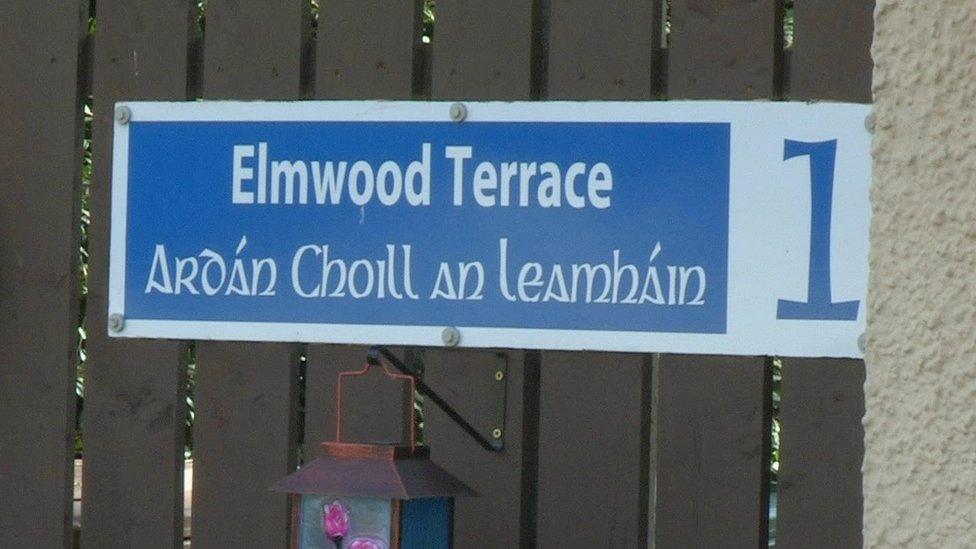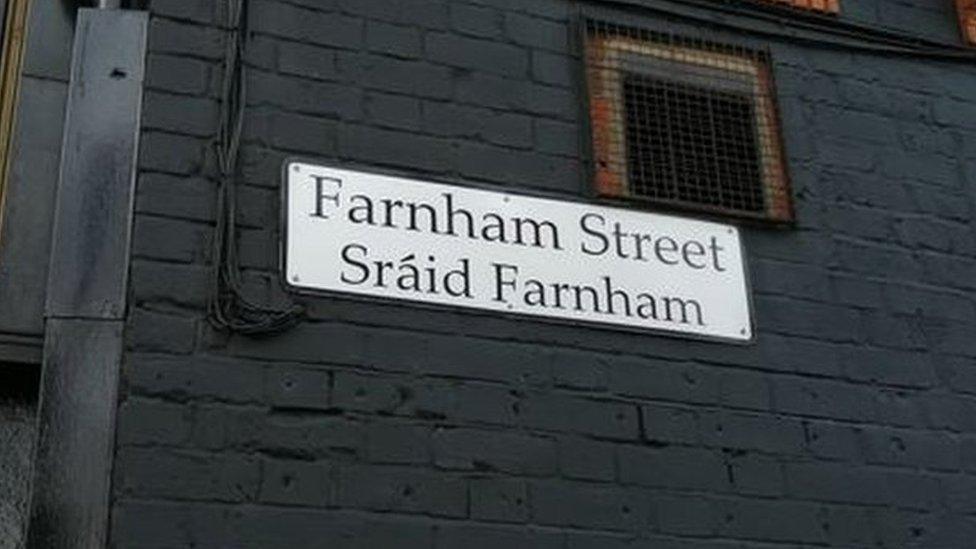Ulster British commissioner plans need rethought - human rights group
- Published

The creation of a commissioner for the "Ulster British tradition" could contribute to sectarianism and needs a rethink, a major new report has said.
The Council of Europe (CoE) report said more bilingual signs should be promoted in Northern Ireland as it sent the message "territory is shared."
The report also said there was still a need for the development of more Irish-language policies.
The CoE is a human rights organisation founded in 1949.
It has 46 member states.
The comments are contained in the CoE's fifth report on how the UK is complying with its convention for the protection of national minorities.
The report addresses wide-ranging issues including language and cultural rights, racism, integrated education and proposals to deal with the legacy of the troubles.
Experts from the council visited Northern Ireland in April 2022 and also held online meetings with representatives from the devolved administrations in the UK.
The Identity and Language (Northern Ireland) Act was passed in Westminster in 2022, but many of the practical measures it introduces have yet to be enacted.
Under the act, an Office of Cultural Identity and Cultural Expression is to be set up and two commissioners appointed.
One will be an Irish-language commissioner and one will be a commissioner "for the Ulster Scots and the Ulster British tradition".
'Political ends'
The CoE experts welcomed the passing of the language legislation but said some law changes were still needed.
"These proposals further contribute to the sectarianism surrounding cultural questions," the report said.
"The naming of a commissioner for Ulster Scots as for the Ulster Scots and the Ulster British tradition unnecessarily conflates this minority identity with a distinct political one, for example.
"The legislative conflation of Ulster Scots and Ulster British may unnecessarily provoke instrumentalization of this group for political ends in the context of Northern Ireland."
The report also noted that a related CoE committee on minority languages had said that "with regard to education, public signage and media, for example a comprehensive Irish language act is still necessary to provide legal certainty and transparency".
More widely, the CoE experts said more could be done to protect and promote languages in Northern Ireland.
"Ulster Scots representatives highlighted the insufficient state support for their language, the lack of action in diverse fields," the report said.
"They also stated that time and resources are mostly spent defending their interests from political debate."

The report said more bilingual street and road signs were needed
Irish-language representatives who met the CoE experts raised the problem of erecting more bilingual street and road signs in some council areas.
Belfast City Council introduced a new policy for dual language signs in 2022 but there is a significant backlog.
The CoE experts said there needed to be a "transparent and consistent approach" across all councils for bilingual signs.
"The advisory committee reiterates that 'bilingualism in signposts should be promoted as it conveys the message that a given territory is shared'," their report said.
'Fear of integration'
With regard to education, the CoE report called for more places in integrated schools in Northern Ireland and for more support for Irish-medium education.
But it claimed that some children in Northern Ireland "fear the prospect of integration" due to the legacy of the Troubles.
"Education remains split along religious lines, and there is evidence that children growing up in these contexts fear the prospect of integration - such is the weight of history and conflict on society," the report noted.
It said the education authorities should have a vision of "creating a fully integrated education system in Northern Ireland".
The experts also called the situation for people from black, Asian and minority ethnic backgrounds and Irish Travellers in Northern Ireland "particularly alarming".
They were critical of Stormont attempts to develop a racial equality strategy, saying it lacked "strong high-level commitment and included no discrete funding".
'Discrimination blind-spot'
A Belfast City Council study previously found many ethnic minority residents in the city still faced "racism, isolation and poverty".
The CoE report said the absence of Stormont "maintained the focus on post-conflict issues which are entrenched along political divides" and meant ethnic minorities were overlooked.
It also said there was a "blind spot" when it came to Muslim and Jewish communities in Northern Ireland and a strategy to tackle the discrimination faced by Irish Travellers and Roma was needed.
The council's framework convention for the protection of national minorities was signed by the UK in 1995 and sets out a number of principles to be respected by states to protect minorities.
But the CoE cannot force the UK government or the Northern Ireland Executive, when it is reformed, to implement its recommendations.
Related topics
- Published17 February 2023

- Published1 December 2022
